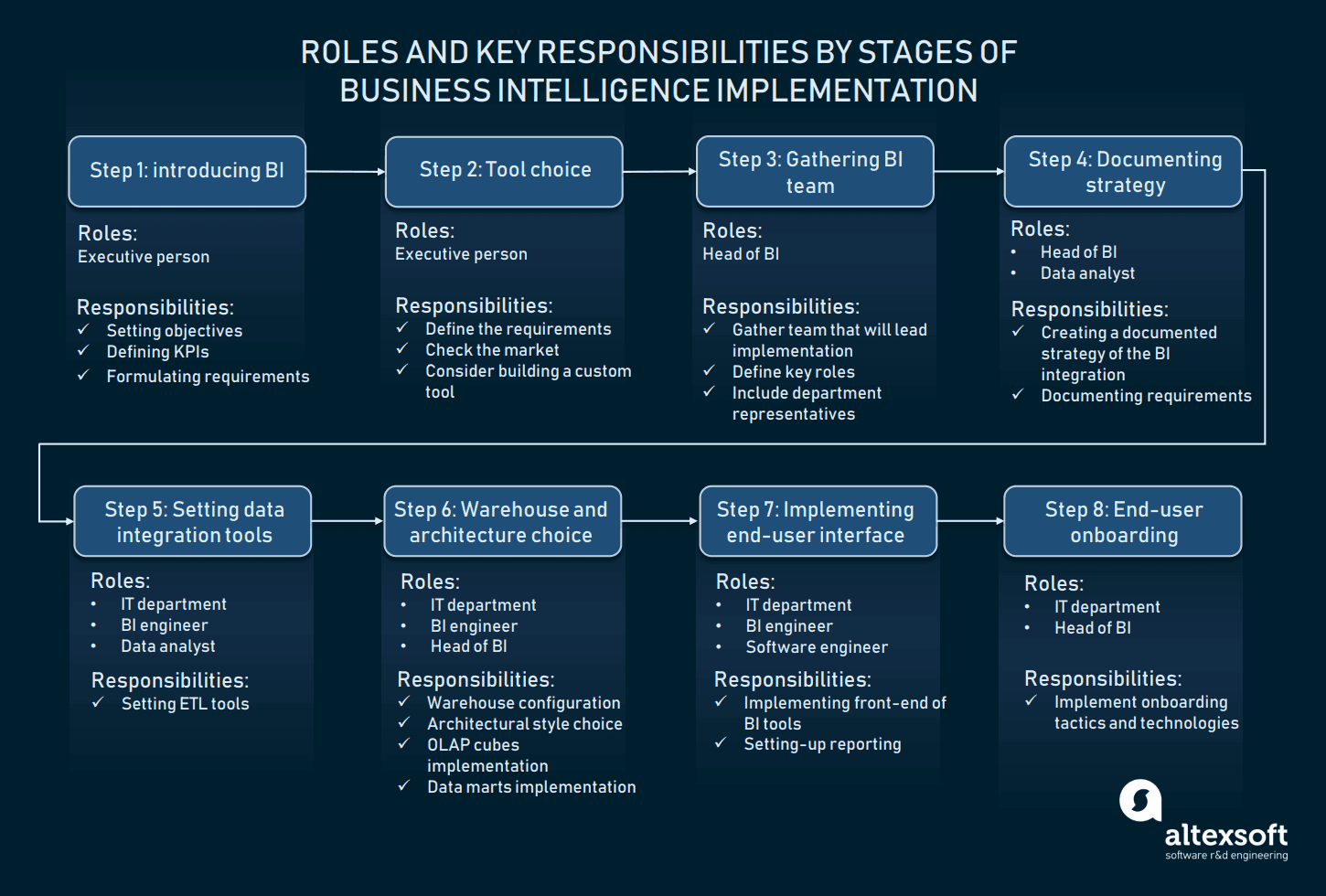In today’s fast-paced and data-driven business landscape, companies rely heavily on business intelligence (BI) to inform strategic decisions, optimize operations, and drive growth. Business intelligence is a set of processes, technologies, and tools used to transform raw data into meaningful insights, enabling organizations to make data-driven decisions. As a result, the demand for skilled professionals in business intelligence has skyrocketed, making it an exciting and rewarding career path. In this article, we will delve into the job responsibilities of business intelligence professionals, exploring their key roles, skills, and opportunities.

Key Job Responsibilities of Business Intelligence Professionals
Business intelligence professionals are responsible for analyzing and interpreting complex data to identify trends, patterns, and correlations. Their primary goal is to provide actionable insights that support business decisions, drive revenue growth, and improve operational efficiency. The following are some of the key job responsibilities of business intelligence professionals:
- Data Analysis and Interpretation: BI professionals collect, analyze, and interpret large datasets to identify trends, patterns, and correlations. They use statistical models, data mining techniques, and data visualization tools to extract insights from data.
- Report Development and Maintenance: BI professionals design, develop, and maintain reports, dashboards, and scorecards to communicate insights to stakeholders. They ensure that reports are accurate, timely, and relevant to business needs.
- Data Visualization: BI professionals use data visualization tools to create interactive and dynamic dashboards, charts, and graphs that facilitate data exploration and insights discovery.
- Data Mining and Predictive Analytics: BI professionals apply data mining and predictive analytics techniques to identify patterns, predict future trends, and forecast business outcomes.
- Business Requirements Gathering: BI professionals work closely with stakeholders to gather business requirements, identify data needs, and define metrics and key performance indicators (KPIs).
- Data Governance and Quality: BI professionals ensure that data is accurate, complete, and consistent, and that data governance policies and procedures are in place to maintain data quality.
- Collaboration and Communication: BI professionals collaborate with stakeholders, including business leaders, IT teams, and external partners, to ensure that insights are actionable and relevant to business needs.
- Staying Up-to-Date with Industry Trends: BI professionals stay current with emerging trends, technologies, and tools in business intelligence, ensuring that their skills and knowledge are up-to-date and relevant.
Skills and Qualifications
To succeed in a business intelligence role, professionals need to possess a combination of technical, business, and soft skills. Some of the key skills and qualifications include:
- Technical Skills: Proficiency in data analysis, reporting, and visualization tools, such as Excel, SQL, Tableau, Power BI, and SAS.
- Business Acumen: Understanding of business operations, market trends, and industry dynamics.
- Data Analysis and Interpretation: Ability to collect, analyze, and interpret large datasets.
- Communication and Collaboration: Strong communication and collaboration skills to work with stakeholders and communicate insights effectively.
- Problem-Solving and Critical Thinking: Ability to think critically and solve complex problems using data-driven approaches.
- Bachelor’s or Master’s Degree: A degree in computer science, information systems, statistics, or a related field is often required for business intelligence roles.
Career Opportunities and Advancement
The demand for business intelligence professionals is on the rise, with opportunities available in various industries, including finance, healthcare, retail, and government. With experience and skills, BI professionals can advance to senior roles, such as:
- Senior Business Intelligence Analyst: Leads teams of BI analysts and provides strategic guidance on BI initiatives.
- Business Intelligence Manager: Oversees BI operations, including data governance, report development, and stakeholder management.
- Director of Business Intelligence: Develops and implements BI strategies, manages budgets, and leads cross-functional teams.
- Chief Data Officer: Oversees data management, governance, and analytics across the organization.
FAQ
- What is business intelligence, and how does it support business decisions?
Business intelligence is a set of processes, technologies, and tools used to transform raw data into meaningful insights, enabling organizations to make data-driven decisions. - What skills and qualifications are required for a business intelligence role?
BI professionals need a combination of technical, business, and soft skills, including data analysis, reporting, and visualization tools, business acumen, and communication and collaboration skills. - What are the key job responsibilities of business intelligence professionals?
BI professionals are responsible for data analysis and interpretation, report development and maintenance, data visualization, data mining and predictive analytics, business requirements gathering, data governance and quality, and collaboration and communication. - What career opportunities are available in business intelligence?
BI professionals can advance to senior roles, such as senior business intelligence analyst, business intelligence manager, director of business intelligence, and chief data officer. - How do I stay up-to-date with industry trends and emerging technologies in business intelligence?
Attend conferences, workshops, and webinars, read industry publications, and participate in online forums and communities to stay current with emerging trends and technologies.
Conclusion
Business intelligence is a critical function that enables organizations to make data-driven decisions, drive revenue growth, and improve operational efficiency. As a result, the demand for skilled business intelligence professionals has increased, making it an exciting and rewarding career path. By understanding the key job responsibilities, skills, and qualifications required for BI roles, professionals can pursue a successful career in business intelligence. With opportunities available in various industries and the potential for advancement to senior roles, business intelligence is an attractive and dynamic field that offers a bright future for those who are passionate about data analysis, interpretation, and insights discovery.
Closure
Thus, we hope this article has provided valuable insights into The Role of Business Intelligence: Unveiling Job Responsibilities and Opportunities. We thank you for taking the time to read this article. See you in our next article!